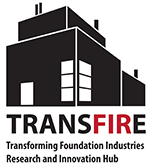Model and simulation-based investigation on use of agriculture waste/byproduct in brick manufacturing
This case study utilises ThermoRecycliSt (Thermodynamic simulation-guided (waste/byproduct) materials Recycling Strategy) and other available models to conduct an exploratory investigation to manufacture eco-friendly light-weight bricks through the mixing of agriculture waste/byproduct with raw materials used for clay brick manufacturing at the Wienerberger brick factory. The primary focus is on examining the feasibility of incorporating agricultural waste and byproducts into the brick manufacturing process. By leveraging ThermoRecycliSt, alongside proven models, this study seeks to relatively predict the essential properties of pre-manufactured bricks, significantly reducing the need for laborious and resource-intensive lab-scale trials. By incorporating modelling tools, it becomes possible to conduct a more streamlined and economical evaluation of the feasibility of utilising waste/byproduct materials in the production of bricks. Ultimately, this case study endeavours to provide valuable insights into the feasibility of implementing ThermoRecycliSt and similar models for enhancing sustainability in the construction industry by reducing reliance on traditional raw materials, [...]






